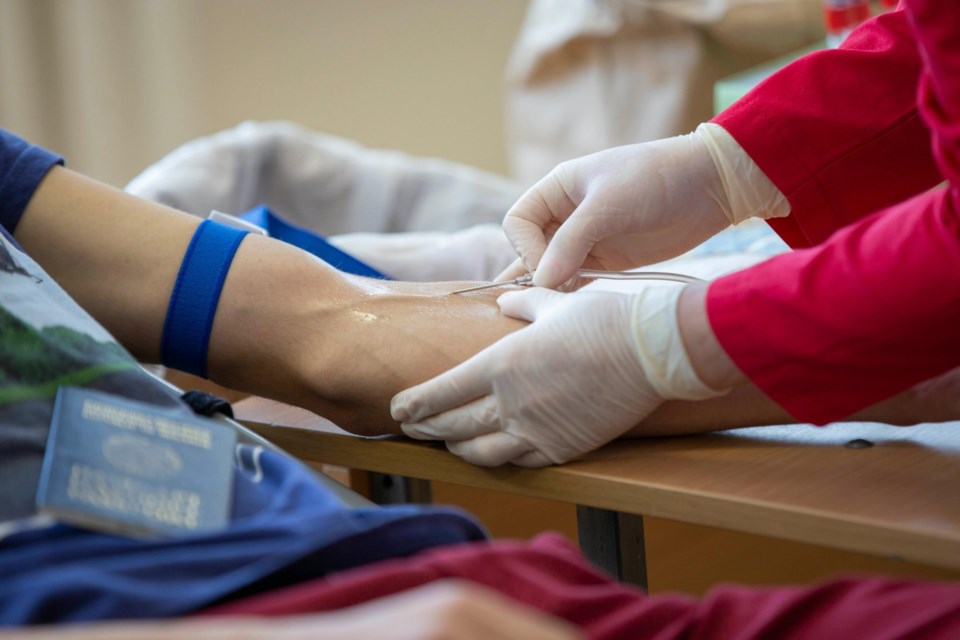SASKATCHEWAN — Blood, it’s in you to give, is one of the messages delivered to residents on the importance of blood donations.
“A recent IPSOS survey shows that 87 per cent of people in Canada recognize there is a constant need for blood and blood products, yet nearly 50 per cent say they haven’t donated because they are waiting to be asked,” Paolo Oliveros, specialist, Strategic Communications for Canadian Blood Services tells the News-Optimist, Assiniboia Times and Â鶹´«Ã½.
“We are asking Canadians to make blood donation part of their routine.”
Canadian Blood Services says some people who were ineligible to donate before are thinking they won’t be able to donate anymore. The organization are continuously reviewing and updating their donor screening criteria. You may be eligible now, even if you weren’t before.  Recent changes in eligibility criteria are listed on their website,
New donors of all blood types are needed but is particularly vital that people with O-negative, O-positive and B-negative donate as soon as they can. As the universal blood type that can be given to any patient, O-negative donations are critically important in emergency care. Also, O-positive blood can be given to any patient with positive Rh blood type.
“But rare blood donors are critical to help ensure patient needs are met,” Oliveros adds.
“People with rare blood depend on each other. The best blood type match for patients with rare blood often comes from donors of the same race or similar ethnicity, which is why a diverse donor base is critical to saving lives.”
CBS affirms that on average, every 60 seconds someone in Canada needs blood. Blood and blood products are not just for emergencies as many people with various health conditions require regular transfusion therapy. Blood plays a critical role in everyday medical care.
For instance, Oliveros acknowledges that a person living with leukemia may need blood from up to eight donors every week.
Hospitals in Saskatchewan know that if appointments aren’t filled, their access to sufficient blood supply could change.
“Patients are counting on people making the time to donate, to ensure a steady supply of blood and blood products. Appointment bookings at Canadian Blood Services’ blood and plasma donor centres across the country are not keeping pace with the rising demand for blood products.”
There are more than 1,300 appointments that need to be filled in the Regina donor centre and more than 1,600 open appointments in Saskatoon until the end of September.
Donors can book an appointment on blood.ca, use the GiveBlood app or call 1-888-2-DONATE (1-888-236-6283)
Blood donors must be at least 17 years of age and meet minimum height and weight requirements. A blood donation typically involves approximately 450 millilitres, slightly less than half a litre or two cups, which represents a small portion of the blood in a person’s body. The average adults has about five litres.
The entire donation process takes just over an hour. Donors are encouraged to prepare for their blood donation by drinking lots of water, eating a healthy meal, getting a good night’s rest, having a salty snack and at least 500 millilitres of water just before donating. Some donors say even walking to the clinic or moderate exercise before donation also assists with the donation process.
Locations of clinics outside of Regina and Saskatoon and are included on the Saskatchewan Health Authority Facebook page. August clinics were held in Moose Jaw, Tisdale and Melville.
Residents are encouraged to check with the SHA or Canadian Blood Services for a location near them and consider giving the gift of life soon.




